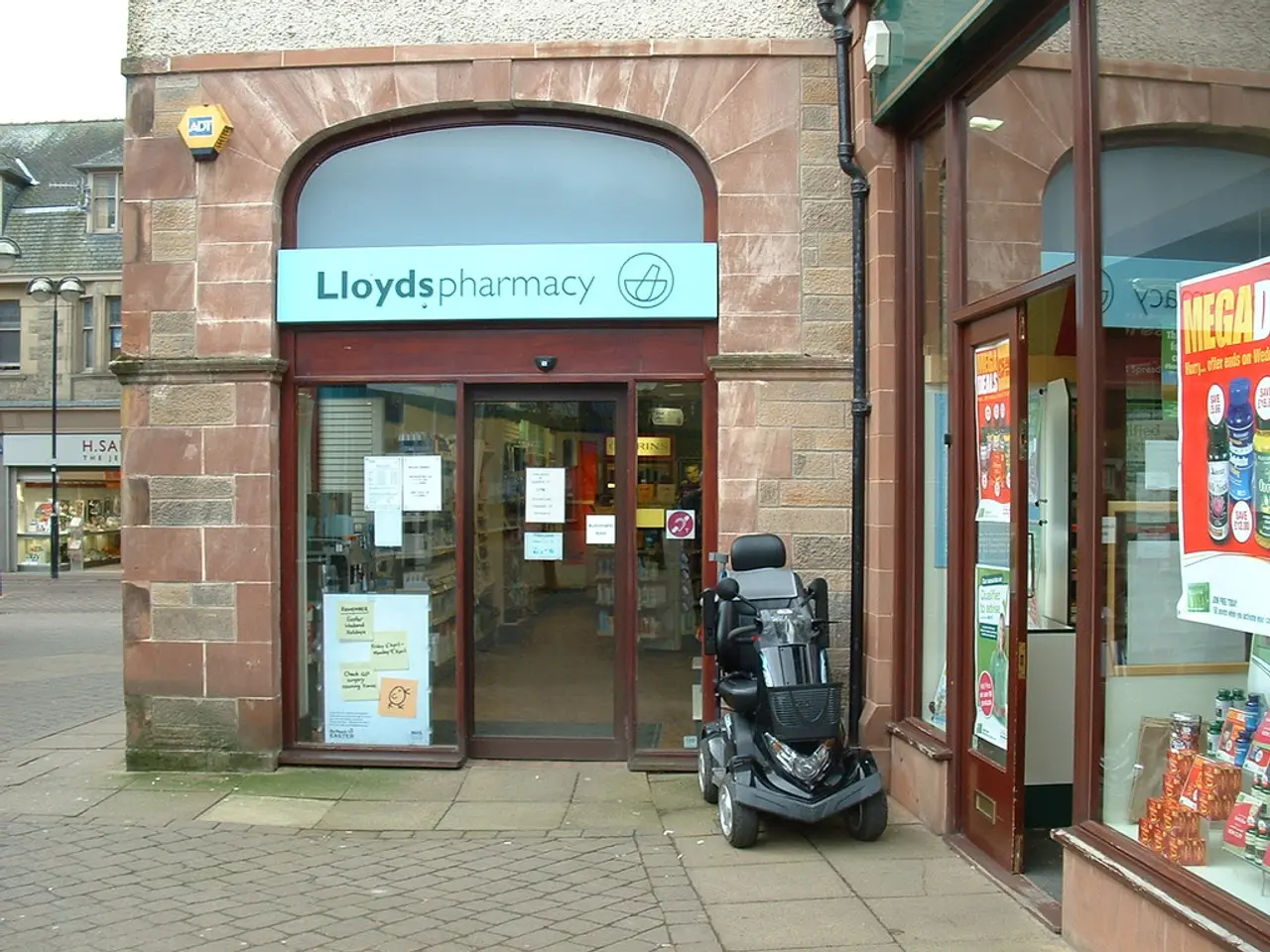U.S. pharmaceutical company AbbVie to put $195 million into domestic production of drug components
Pharmaceutical Giants Boost U.S. Manufacturing Amid Tariff Threats
In a significant move, AbbVie, a leading pharmaceutical company, has announced a $195 million expansion of its active pharmaceutical ingredient (API) manufacturing at its North Chicago site. This investment is part of AbbVie's larger $10 billion capital commitment aimed at boosting innovation and manufacturing capacity in the U.S., with operations expected by 2027[2][3].
The investment forms part of a broader industry trend towards expanding domestic production capacity. Other major pharma firms such as Roche, Novartis, and Johnson & Johnson have pledged tens of billions for U.S.-based R&D and manufacturing expansion projects over the next 5 to 10 years[1][3][4].
The U.S. government perceives the country's reliance on overseas API sources as creating "national security risks." This surge in investment, including AbbVie's, aims to address this concern by expanding domestic API production[1]. The new North Chicago API facility will support the production of current and next-generation neuroscience, immunology, and oncology medicines, playing a role in expanding AbbVie's chemical synthesis capabilities in the U.S[3].
The FDA's new program to encourage U.S. pharma manufacturing investments is likely to have contributed to this trend. The new facility will create thousands of new jobs and contribute to the state's biomanufacturing ecosystem[1][2][5]. Gov. J.B. Pritzker praised AbbVie's decision to expand in Illinois, noting the state's workforce, infrastructure, research institutions, and strategic location[5].
AbbVie's investment comes amid tariff threats, such as the proposed phased-in 250% import tax on pharmaceuticals. Companies are securing and growing U.S. production capabilities as a strategic move to reduce supply chain risks and ensure market access[4]. Other pharmaceuticals, including Eli Lilly, are also investing in R&D in the U.S. due to the threat of looming tariffs[4].
Notably, Lilly is set to build four new plants, three of which will focus on APIs. This investment is a concern for the U.S. government, which perceives the country's reliance on overseas API sources as creating "national security risks."
AbbVie's decision to buy Capstan Therapeutics, a company developing CAR-T therapies, for $2.1 billion, further demonstrates its commitment to innovation and next-generation medicines[6]. The new North Chicago API facility is expected to be fully functional by 2027[2]. Construction of the new facility will begin in fall 2025[3].
References:
- Pharmaceutical giants ramp up US investments
- AbbVie to Expand North Chicago Manufacturing Plant
- AbbVie to Expand API Manufacturing in North Chicago
- Pharmaceutical Companies Boost U.S. Manufacturing Amid Tariff Threats
- Illinois Gov. J.B. Pritzker Praises AbbVie's Decision to Expand in Illinois
- AbbVie to buy Capstan Therapeutics in $2.1 billion deal
Technology plays a significant role in AbbVie's strategic expansion of its API manufacturing, with the new North Chicago facility set to incorporate advanced technology for the production of current and next-generation neuroscience, immunology, and oncology medicines.
The expanded chemical synthesis capabilities in the U.S. through investments from AbbVie and other pharmaceutical firms, such as Eli Lilly, underscore the growing use of technology in pharmaceutical manufacture as a means to enhance innovation and reduce supply chain risks.




